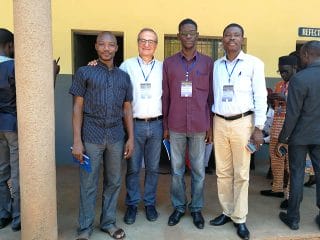
Jun 20, 2018 | Focolare Worldwide
 A seminar on the Journalism of Dialogue took place in Bodo-Dioulasso in Burkina Faso from 9 to 13 June. Michele Zanzucchi from Italy, Guy Roland from Benin, Armand Djoualeu from Cameroon plus many Christian and Muslim professionals and students from Niger, Mali, Ivory Coast, Benin and Burkina Faso participated. The aim of the seminar was to equip journalists with the skills of dialogue whereby respect and responsibility is shown towards each person. The seminar opened with a round table on the “journalism of migration” which was attended by representatives from the government and from the Catholic church. One of the proposals emerging from this was the desire to form a regional network of journalists who can correctly form and inform the public about migration, especially migration to Europe.
A seminar on the Journalism of Dialogue took place in Bodo-Dioulasso in Burkina Faso from 9 to 13 June. Michele Zanzucchi from Italy, Guy Roland from Benin, Armand Djoualeu from Cameroon plus many Christian and Muslim professionals and students from Niger, Mali, Ivory Coast, Benin and Burkina Faso participated. The aim of the seminar was to equip journalists with the skills of dialogue whereby respect and responsibility is shown towards each person. The seminar opened with a round table on the “journalism of migration” which was attended by representatives from the government and from the Catholic church. One of the proposals emerging from this was the desire to form a regional network of journalists who can correctly form and inform the public about migration, especially migration to Europe.
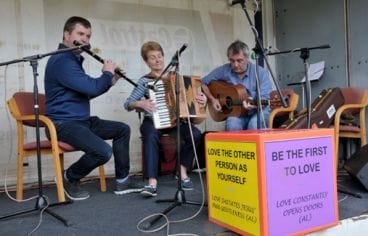
Jun 20, 2018 | Focolare Worldwide
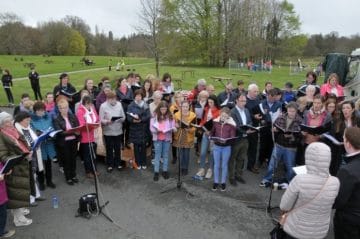 Lough Key Forest Park is close to 2,000 acres of silence, natural paths, majestic cedars and a lake on the south coast oif Lough Key, 25 miles southwest of Sligo Town and 2 miles east of Boyle. This was the setting for a day for families organized by the Diocese of Elphin at the end of April. In collaboration with Bishop Kevin Doran, one of the promoters for the event was the Focolare Movement. “All are invited to an atmosphere full of play, sharing and friendship,” the bishop had said, “including families of other religious denominations, neighbors and friends.” The goal was to prepare for the main event with Pope Francis in the Irish capital, which will bring together families from all over the world at the end of August. The theme will be “The Gospel of the Family: Joy for the World.” Every three years, this international event puts the focus once again on Christian families, as cornerstones of society. Following the opening on August 21, which will be held simultaneously in all the Irish dioceses, there will be an international conference in Dublin for three days (22–24), featuring experts from various parts of the world, experiences, workshops and activities for children and teens. With the Holy Father’s arrival on August 25, there will be an immense festival for families, a chance to hear music and experiences from the continents, as well as, naturally, long-awaited words from the pope. Pope Francis will celebrate a solemn Eucharistic service on the 26th at Phoenix Park in Dublin, which will close the event. “We aren’t many in this part of Ireland,” the Focolare community writes, “but we wanted to respond to the bishop’s invitation.” For a year now, Ireland has been more aware of the complex dynamics in each family, as well its role in society. Together with all the families of the diocese, preparations are underway for collective reflection in the light of the apostolic exhortation Amoris Laetiita. Supported by the entire Focolare community, Evelyn is part of the preparatory committee. “For me this is a great opportunity to build relationships of unity with everyone. Every idea, every contribution, every decision or action to take has been the result of moving forward together with the bishop. There’s been a climate of mutual love created among us all.”
Lough Key Forest Park is close to 2,000 acres of silence, natural paths, majestic cedars and a lake on the south coast oif Lough Key, 25 miles southwest of Sligo Town and 2 miles east of Boyle. This was the setting for a day for families organized by the Diocese of Elphin at the end of April. In collaboration with Bishop Kevin Doran, one of the promoters for the event was the Focolare Movement. “All are invited to an atmosphere full of play, sharing and friendship,” the bishop had said, “including families of other religious denominations, neighbors and friends.” The goal was to prepare for the main event with Pope Francis in the Irish capital, which will bring together families from all over the world at the end of August. The theme will be “The Gospel of the Family: Joy for the World.” Every three years, this international event puts the focus once again on Christian families, as cornerstones of society. Following the opening on August 21, which will be held simultaneously in all the Irish dioceses, there will be an international conference in Dublin for three days (22–24), featuring experts from various parts of the world, experiences, workshops and activities for children and teens. With the Holy Father’s arrival on August 25, there will be an immense festival for families, a chance to hear music and experiences from the continents, as well as, naturally, long-awaited words from the pope. Pope Francis will celebrate a solemn Eucharistic service on the 26th at Phoenix Park in Dublin, which will close the event. “We aren’t many in this part of Ireland,” the Focolare community writes, “but we wanted to respond to the bishop’s invitation.” For a year now, Ireland has been more aware of the complex dynamics in each family, as well its role in society. Together with all the families of the diocese, preparations are underway for collective reflection in the light of the apostolic exhortation Amoris Laetiita. Supported by the entire Focolare community, Evelyn is part of the preparatory committee. “For me this is a great opportunity to build relationships of unity with everyone. Every idea, every contribution, every decision or action to take has been the result of moving forward together with the bishop. There’s been a climate of mutual love created among us all.”  At the entrance to the immense public park, hanging from the tree branches, were the six sides of the Cube of Love, which included words from Amoris Laetitia and Chiara Lubich on the family. Moving in the wind, the cube greeted the public upon arrival. The same cube was rolled on stage at the beginning of the day, so that everyone could tune in to the message, “Be the first to love.” The day was a festive sequence of music and workshops on caring for the environment, family games, entertainment, face painting, dance and helping the needy. There was a particularly intense moment of prayer together, led by the Anglican and Catholic bishops. They later cut a cake together, which not by chance was cube shaped. The moment was captured permanently by the local paper, the Roscommon Herald, and other websites and newsletters. At the end of the day one of the participants, Andrew, sang a song he had written about the three words that Pope Francis had suggested for family life: “Please”, “Thanks” and “Sorry.” “As I was circulating among the people,” said Áine from the Focolare, “I thought of the words from ‘The great attraction of modern times,’ a meditation written by Chiara Lubich. I felt they described that moment, in the midst of a crowd made up of people from faraway villages and countries – not just Catholics, but other religious denominations. “Some were from even further away, like those who had just arrived as refugees and asylum seekers, mostly Muslims from Africa and the Middle East. They were surprised to find such a focus on the family in Ireland as well.”
At the entrance to the immense public park, hanging from the tree branches, were the six sides of the Cube of Love, which included words from Amoris Laetitia and Chiara Lubich on the family. Moving in the wind, the cube greeted the public upon arrival. The same cube was rolled on stage at the beginning of the day, so that everyone could tune in to the message, “Be the first to love.” The day was a festive sequence of music and workshops on caring for the environment, family games, entertainment, face painting, dance and helping the needy. There was a particularly intense moment of prayer together, led by the Anglican and Catholic bishops. They later cut a cake together, which not by chance was cube shaped. The moment was captured permanently by the local paper, the Roscommon Herald, and other websites and newsletters. At the end of the day one of the participants, Andrew, sang a song he had written about the three words that Pope Francis had suggested for family life: “Please”, “Thanks” and “Sorry.” “As I was circulating among the people,” said Áine from the Focolare, “I thought of the words from ‘The great attraction of modern times,’ a meditation written by Chiara Lubich. I felt they described that moment, in the midst of a crowd made up of people from faraway villages and countries – not just Catholics, but other religious denominations. “Some were from even further away, like those who had just arrived as refugees and asylum seekers, mostly Muslims from Africa and the Middle East. They were surprised to find such a focus on the family in Ireland as well.”

Jun 14, 2018 | Focolare Worldwide
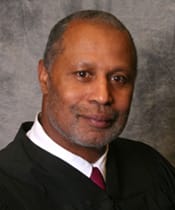 He has been a civil court judge of the Marion Court in Indianapolis since 1999, and in 2007 he was declared Judge of the Year because of his work among prisoners and drug defendants. David Shaheed is African-American and Muslim. He he shares his passion for law and interreligious dialogue. Since 2019 he has presided over the Interfaith Alliance of Indianapolis. His resume can leave us awestruck, but Dr Shaheed immediately puts us at ease with his simplicity and freedom as he talks about his faith and of the relationship that linked him and continues to link him to Chiara Lubich. She gave me the courage to step beyond our faiths, to help the other and to understand them. But this didn’t remain an abstract concept, because Chiara gave me the means by which to live and show it.” The judge drew inspiration from the experience of destruction of the Second World War that Chiara Lubich went through, to come up with a reform of his court. “The world was under the pressure of this enormous war. And yet this young woman from Trent overcame her personal fears in order to seek out the sufferings of others: Her witness gave me the courage to establish in my workplace on the bench a special tribunal for people with psychological or drug addiction problems.” Breaking a judicial tradition that entrusted the ordinary tribunals with the treatment of defendants with psychic or alcohol and drug dependence, with consequent convictions that do not provide for the rehabilitation of the person, Dr Shaheed asked his colleagues to take note of the impact the prison or probation had on the life of the condemned. In fact many of these returned to court or prison for new crimes without receiving adequate treatment for themselves or for their handicaps. After an initial scepticism and embarrassment, the challenge of “serving the least” has become the common goal of the other judges of the local court which, overcoming the tradition of Common Law that assigns to the courts of appeal expertise on the matter, last year launched a special section for “special” people. In this way the defendants are assisted in accessing cures and specialized advice both in prison and in court, so that the entire judicial system are oriented to the needs of the person and not to conviction and punishment for petty crimes.
He has been a civil court judge of the Marion Court in Indianapolis since 1999, and in 2007 he was declared Judge of the Year because of his work among prisoners and drug defendants. David Shaheed is African-American and Muslim. He he shares his passion for law and interreligious dialogue. Since 2019 he has presided over the Interfaith Alliance of Indianapolis. His resume can leave us awestruck, but Dr Shaheed immediately puts us at ease with his simplicity and freedom as he talks about his faith and of the relationship that linked him and continues to link him to Chiara Lubich. She gave me the courage to step beyond our faiths, to help the other and to understand them. But this didn’t remain an abstract concept, because Chiara gave me the means by which to live and show it.” The judge drew inspiration from the experience of destruction of the Second World War that Chiara Lubich went through, to come up with a reform of his court. “The world was under the pressure of this enormous war. And yet this young woman from Trent overcame her personal fears in order to seek out the sufferings of others: Her witness gave me the courage to establish in my workplace on the bench a special tribunal for people with psychological or drug addiction problems.” Breaking a judicial tradition that entrusted the ordinary tribunals with the treatment of defendants with psychic or alcohol and drug dependence, with consequent convictions that do not provide for the rehabilitation of the person, Dr Shaheed asked his colleagues to take note of the impact the prison or probation had on the life of the condemned. In fact many of these returned to court or prison for new crimes without receiving adequate treatment for themselves or for their handicaps. After an initial scepticism and embarrassment, the challenge of “serving the least” has become the common goal of the other judges of the local court which, overcoming the tradition of Common Law that assigns to the courts of appeal expertise on the matter, last year launched a special section for “special” people. In this way the defendants are assisted in accessing cures and specialized advice both in prison and in court, so that the entire judicial system are oriented to the needs of the person and not to conviction and punishment for petty crimes.  “I grew up in America where there has been a strong history of racism until now, but meeting the Focolare has helped me to realize that not all the whites and their European ancestors held the same hostility toward Afro-Americans. So it was a liberating experience for me, because I was living under the influence of this mentality and for the first time I had brothers of European descent. I learned from the Focolare that Jesus’s life consisted in showing mercy and compassion to others. I learned to live that way as a judge and to experience compassion. For me, being part of the Focolare community means giving the best proof of how to live the attributes of God as written in the Koran; that is, love, mercy and compassion.” Looking at the Movement’s mission ten years on from the death of Chiara Lubich, the judge from Indiana wishes that “the dialogue goes forward, because the Focolare’s model is one of the best models for encounter among people of different religions, ethnic groups or nationalities. In an atmosphere of strong nationalism such as we are living, where one’s own interests take priority over everything else, our experience is a counter-narrative because it shows that the word of God leads people to encounter one another and not to isolate themselves from each another – and this is an example not only for the faith and the religion: but it is an example of life that can serve our country.” Source: Città Nuova no.6., June 6, 2018
“I grew up in America where there has been a strong history of racism until now, but meeting the Focolare has helped me to realize that not all the whites and their European ancestors held the same hostility toward Afro-Americans. So it was a liberating experience for me, because I was living under the influence of this mentality and for the first time I had brothers of European descent. I learned from the Focolare that Jesus’s life consisted in showing mercy and compassion to others. I learned to live that way as a judge and to experience compassion. For me, being part of the Focolare community means giving the best proof of how to live the attributes of God as written in the Koran; that is, love, mercy and compassion.” Looking at the Movement’s mission ten years on from the death of Chiara Lubich, the judge from Indiana wishes that “the dialogue goes forward, because the Focolare’s model is one of the best models for encounter among people of different religions, ethnic groups or nationalities. In an atmosphere of strong nationalism such as we are living, where one’s own interests take priority over everything else, our experience is a counter-narrative because it shows that the word of God leads people to encounter one another and not to isolate themselves from each another – and this is an example not only for the faith and the religion: but it is an example of life that can serve our country.” Source: Città Nuova no.6., June 6, 2018
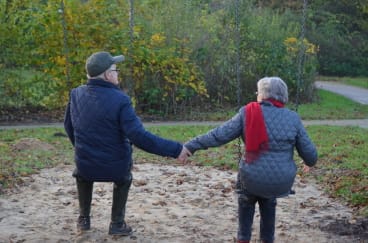
Jun 13, 2018 | Focolare Worldwide
 As Anna and Claudio tell the story of their life, the word passes from one to the other in such a natural way that it’s as if, after many years of marriage, they have become a single person. She begins by saying, “When we were first married, what united us was the enthusiasm and joy of seeing our family grow. I didn’t know anyone in the little town in northern Italy where we had moved for work. I took care of the house and waited for him to come home each evening. We were happy but … something was missing. One Sunday we were chatting to a priest outside the church. We invited him to the house and when he came, he brought a copy of the New City magazine. Later on, he brought us the Word of Life leaflet. We thought that we too could begin to live the words of the Gospel.” Claudio continues: “I had a good job. We made machines that developed and printed films for the cinema. However, when the owner died, there were problems amongst the people who inherited the company. Eventually, I received a really attractive offer of a very well paid job. However, I understood that the content of the films I would be helping to produce would be ethically unacceptable. My wife and I agreed that I should not accept the job. After a while, I had the offer of another job but with a much lower salary. By then, our second child had been born and the expenses were increasing. I accepted the second job, trusting that we would manage. There was a lot of work to do and I needed a helper. The human resources department suggested someone who was known to be a very difficult character. In fact, the first time I met him, he said, ‘If you think you are going to make me work, you have got it all wrong.” I realised that I was going to have to make up for his shortcomings: but in the family we had agreed that we were going to love everyone and so there was no turning back. After that, he began to really enjoy the work and I remember that at Christmas he brought me a little train wrapped up in newspaper for my son.” Anna continues, “I was expecting the third baby when Claudio had the offer of another job. We moved and the other four children were born in that town. We were a little “tribe” that was growing enjoying our way of life and the peace and harmony we tried to maintain always. I was working too. I was teaching German in a high school and this meant that I always had a lot to do. The children were very supportive: they used to help one another with their homework and prepare supper sometimes. The school was about 30 kilometres away from home and I remember coming home on the bus one very wet evening. I was expecting to get absolutely soaked on the way to our house. Mobile phones didn’t exist in those days. When I got off the bus, at the stop, I found one of the children waiting for me with a big umbrella. A few years later, when there were nine of us (plus a cat), my husband’s work meant we needed to move again. I was very hesitant at first. Then I realised how difficult it was for him to spend five nights each week in a hotel. Out of love for him, we decided to pack our bags once again. We understood how important is to always be united and we often prayed together during difficult times. I was on my own during the day but I knew he was always with me. Sometimes, after supper, we used to walk around the block together just to have a little bit of time for the two of us to be on our own.” Claudio takes up the story once again, “Our children are all married now. One of them is separated from his wife and this made us suffer a lot. Recently, when we were on pilgrimage, we entrusted this situation to Mary. At first we prayed that the family could be re united. After a while we thought it was better to ask that their hearts might be converted. Eventually, we understood that the grace we needed to pray for was our conversion. We ended the pilgrimage determined to be attentive to what God might still ask us. We don’t want to stop being instruments of his love. In a family, love is the only thing that must never move.”
As Anna and Claudio tell the story of their life, the word passes from one to the other in such a natural way that it’s as if, after many years of marriage, they have become a single person. She begins by saying, “When we were first married, what united us was the enthusiasm and joy of seeing our family grow. I didn’t know anyone in the little town in northern Italy where we had moved for work. I took care of the house and waited for him to come home each evening. We were happy but … something was missing. One Sunday we were chatting to a priest outside the church. We invited him to the house and when he came, he brought a copy of the New City magazine. Later on, he brought us the Word of Life leaflet. We thought that we too could begin to live the words of the Gospel.” Claudio continues: “I had a good job. We made machines that developed and printed films for the cinema. However, when the owner died, there were problems amongst the people who inherited the company. Eventually, I received a really attractive offer of a very well paid job. However, I understood that the content of the films I would be helping to produce would be ethically unacceptable. My wife and I agreed that I should not accept the job. After a while, I had the offer of another job but with a much lower salary. By then, our second child had been born and the expenses were increasing. I accepted the second job, trusting that we would manage. There was a lot of work to do and I needed a helper. The human resources department suggested someone who was known to be a very difficult character. In fact, the first time I met him, he said, ‘If you think you are going to make me work, you have got it all wrong.” I realised that I was going to have to make up for his shortcomings: but in the family we had agreed that we were going to love everyone and so there was no turning back. After that, he began to really enjoy the work and I remember that at Christmas he brought me a little train wrapped up in newspaper for my son.” Anna continues, “I was expecting the third baby when Claudio had the offer of another job. We moved and the other four children were born in that town. We were a little “tribe” that was growing enjoying our way of life and the peace and harmony we tried to maintain always. I was working too. I was teaching German in a high school and this meant that I always had a lot to do. The children were very supportive: they used to help one another with their homework and prepare supper sometimes. The school was about 30 kilometres away from home and I remember coming home on the bus one very wet evening. I was expecting to get absolutely soaked on the way to our house. Mobile phones didn’t exist in those days. When I got off the bus, at the stop, I found one of the children waiting for me with a big umbrella. A few years later, when there were nine of us (plus a cat), my husband’s work meant we needed to move again. I was very hesitant at first. Then I realised how difficult it was for him to spend five nights each week in a hotel. Out of love for him, we decided to pack our bags once again. We understood how important is to always be united and we often prayed together during difficult times. I was on my own during the day but I knew he was always with me. Sometimes, after supper, we used to walk around the block together just to have a little bit of time for the two of us to be on our own.” Claudio takes up the story once again, “Our children are all married now. One of them is separated from his wife and this made us suffer a lot. Recently, when we were on pilgrimage, we entrusted this situation to Mary. At first we prayed that the family could be re united. After a while we thought it was better to ask that their hearts might be converted. Eventually, we understood that the grace we needed to pray for was our conversion. We ended the pilgrimage determined to be attentive to what God might still ask us. We don’t want to stop being instruments of his love. In a family, love is the only thing that must never move.”

Jun 12, 2018 | Focolare Worldwide
 Some months ago in Milan, the Youths for a United World got together to plan an initiative which would focus on Genfest 2018 in Manila, Philippines. It was then that they revived the idea of selling coffee, as was done on the occasion of the Genfest of 2012 in Budapest. After obtaining a special price from a wholesale distributor, they created the labels which featured the guidelines of the activities and logo of the event. They decided to designate the funds obtained to: support the Filipino people struck by Typhoon Vinta last December, help those arriving in Manila from the farther countries, and add to the funds for general expenses in the organisation of the Genfest. One of the youths of Milano recounted that the idea came up when “we asked ourselves how we could spread the news of the Genfest here. Being an event to promote brotherhood among people, which covers material and interpersonal relationships, it seemed that one of the most representative elements was this desire to socialize, stay together, and as in our culture, share time enjoying a beverage or some coffee: that break you take during the day, which can become the occasion to exchange and share ideas, and to go beyond…” This time it was easier than in 2012, since we already had our contacts. After deciding how to go about it, we contacted the supplier and received 4,000 packets of coffee in a month’s time in the central depot of Milan. In the meanwhile, in the various parts of the region, around 20 people volunteered to create small storage in their homes. The labeling process was done by them and “it became an occasion to get together and dine together, […]. We did this not only in Milan but also in other regions where youths and families are helping one another. Lastly, this activity created many opportunities to meet people we haven’t seen for some time, thus consolidating fraternal relationships.” For further information: caffe2018manila@gmail.com Source: United World Project
Some months ago in Milan, the Youths for a United World got together to plan an initiative which would focus on Genfest 2018 in Manila, Philippines. It was then that they revived the idea of selling coffee, as was done on the occasion of the Genfest of 2012 in Budapest. After obtaining a special price from a wholesale distributor, they created the labels which featured the guidelines of the activities and logo of the event. They decided to designate the funds obtained to: support the Filipino people struck by Typhoon Vinta last December, help those arriving in Manila from the farther countries, and add to the funds for general expenses in the organisation of the Genfest. One of the youths of Milano recounted that the idea came up when “we asked ourselves how we could spread the news of the Genfest here. Being an event to promote brotherhood among people, which covers material and interpersonal relationships, it seemed that one of the most representative elements was this desire to socialize, stay together, and as in our culture, share time enjoying a beverage or some coffee: that break you take during the day, which can become the occasion to exchange and share ideas, and to go beyond…” This time it was easier than in 2012, since we already had our contacts. After deciding how to go about it, we contacted the supplier and received 4,000 packets of coffee in a month’s time in the central depot of Milan. In the meanwhile, in the various parts of the region, around 20 people volunteered to create small storage in their homes. The labeling process was done by them and “it became an occasion to get together and dine together, […]. We did this not only in Milan but also in other regions where youths and families are helping one another. Lastly, this activity created many opportunities to meet people we haven’t seen for some time, thus consolidating fraternal relationships.” For further information: caffe2018manila@gmail.com Source: United World Project
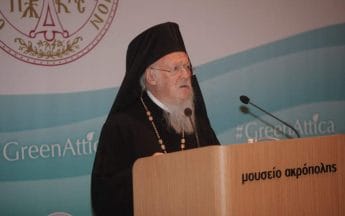
Jun 10, 2018 | Focolare Worldwide
 Creation is “a shared gift, not a private possession” and taking care of it “always entails the recognition and respect of the rights of every person and every people”. These the words of Pope Francis who sent a message to the international symposium on protecting the environment which took place in Athens, on the Attic peninsula, 5-8 June, convened by the Ecumenical Patriarchate of Constantinople, hosted by Patriarch Bartholomew. Entitled “Toward a Greener Attica. Preserving the planet and protecting its people”, the symposium comes three years after the papal Encyclical Laudato Si’ and coincided with World Environment Day. It welcomed 250 participants: theologians and scientists, political and business leaders, as well as activists and journalists from all over the world. Together they explored the pressing environmental problems of the region and its islands, examining the connections between ecology and economy, particularly in the context of pressing social and environmental challenges of our time.
Creation is “a shared gift, not a private possession” and taking care of it “always entails the recognition and respect of the rights of every person and every people”. These the words of Pope Francis who sent a message to the international symposium on protecting the environment which took place in Athens, on the Attic peninsula, 5-8 June, convened by the Ecumenical Patriarchate of Constantinople, hosted by Patriarch Bartholomew. Entitled “Toward a Greener Attica. Preserving the planet and protecting its people”, the symposium comes three years after the papal Encyclical Laudato Si’ and coincided with World Environment Day. It welcomed 250 participants: theologians and scientists, political and business leaders, as well as activists and journalists from all over the world. Together they explored the pressing environmental problems of the region and its islands, examining the connections between ecology and economy, particularly in the context of pressing social and environmental challenges of our time. 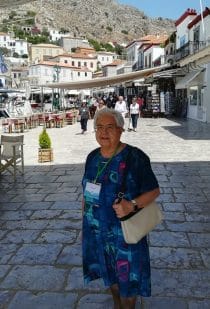 Among those invited was Maria Voce, President of the Focolare Movement founded by Chiara Lubich, a movement which over the years has developed its contribution to protecting the planet in many parts of the globe. “It is wonderful to see people from all over the world”, she reflected, “including religious leaders of different churches, gathering to seek solutions together in the hope that our planet can continue more serenely, if we protect and preserve it for the generations to come”. She added, “It’s very good to be looking at all aspects of ecology: the environment and its effect on people. What has come out strongly is that the whole planet is involved in ecology like this. Nature is a gift we receive from God and as such it must be welcomed with respect and gratitude. It must be passed on in the best way possible to our brothers and sisters who will come after us”. The actual programme of the symposium displayed an “ecological approach”, mused Maria Voce. “The schedule was full, but interspersed with journeys to the surrounding Saronic islands, which provided opportunities to meet and talk with one another, making it easier to establish relationships through a combination of study, relaxation and international friendship. I think this meeting offers hope for the future of the planet”.
Among those invited was Maria Voce, President of the Focolare Movement founded by Chiara Lubich, a movement which over the years has developed its contribution to protecting the planet in many parts of the globe. “It is wonderful to see people from all over the world”, she reflected, “including religious leaders of different churches, gathering to seek solutions together in the hope that our planet can continue more serenely, if we protect and preserve it for the generations to come”. She added, “It’s very good to be looking at all aspects of ecology: the environment and its effect on people. What has come out strongly is that the whole planet is involved in ecology like this. Nature is a gift we receive from God and as such it must be welcomed with respect and gratitude. It must be passed on in the best way possible to our brothers and sisters who will come after us”. The actual programme of the symposium displayed an “ecological approach”, mused Maria Voce. “The schedule was full, but interspersed with journeys to the surrounding Saronic islands, which provided opportunities to meet and talk with one another, making it easier to establish relationships through a combination of study, relaxation and international friendship. I think this meeting offers hope for the future of the planet”.  Much needed hope. Pope Francis has expressed his concerns over the risk that future generations may be condemned “to live in a common home that is reduced to ruins” or to leave their homelands because of climate change and disasters triggered by greedy exploitation of the earth’s resources. The Pope was represented at the symposium by Cardinal Peter Turkson, Prefect of the Dicastery for the Promotion of Integral Human Development. Recalling his joint message for the September 1st World Day of Prayer for Creation, written together with Patriarch Bartholomew, Pope Francis stated that “the duty to care for creation challenges all people of good will and invites Christians to recognize the spiritual roots of the ecological crisis and to cooperate in offering an unequivocal response”. The main priority, concluded the Patriarch, popularly known as “the Green Patriarch” is to rethink the current economic system which “ignores the needs of human beings and inevitably leads to the exploitation of the natural environment”. Above all, he added, real change can only be born from the human heart. “The destruction of the natural environment can only be averted through a radical change in our perspective toward nature, which comes from a radical change in our self-perception as human beings”. Claudia Di Lorenzi
Much needed hope. Pope Francis has expressed his concerns over the risk that future generations may be condemned “to live in a common home that is reduced to ruins” or to leave their homelands because of climate change and disasters triggered by greedy exploitation of the earth’s resources. The Pope was represented at the symposium by Cardinal Peter Turkson, Prefect of the Dicastery for the Promotion of Integral Human Development. Recalling his joint message for the September 1st World Day of Prayer for Creation, written together with Patriarch Bartholomew, Pope Francis stated that “the duty to care for creation challenges all people of good will and invites Christians to recognize the spiritual roots of the ecological crisis and to cooperate in offering an unequivocal response”. The main priority, concluded the Patriarch, popularly known as “the Green Patriarch” is to rethink the current economic system which “ignores the needs of human beings and inevitably leads to the exploitation of the natural environment”. Above all, he added, real change can only be born from the human heart. “The destruction of the natural environment can only be averted through a radical change in our perspective toward nature, which comes from a radical change in our self-perception as human beings”. Claudia Di Lorenzi

 A seminar on the Journalism of Dialogue took place in Bodo-Dioulasso in Burkina Faso from 9 to 13 June. Michele Zanzucchi from Italy, Guy Roland from Benin, Armand Djoualeu from Cameroon plus many Christian and Muslim professionals and students from Niger, Mali, Ivory Coast, Benin and Burkina Faso participated. The aim of the seminar was to equip journalists with the skills of dialogue whereby respect and responsibility is shown towards each person. The seminar opened with a round table on the “journalism of migration” which was attended by representatives from the government and from the Catholic church. One of the proposals emerging from this was the desire to form a regional network of journalists who can correctly form and inform the public about migration, especially migration to Europe.
A seminar on the Journalism of Dialogue took place in Bodo-Dioulasso in Burkina Faso from 9 to 13 June. Michele Zanzucchi from Italy, Guy Roland from Benin, Armand Djoualeu from Cameroon plus many Christian and Muslim professionals and students from Niger, Mali, Ivory Coast, Benin and Burkina Faso participated. The aim of the seminar was to equip journalists with the skills of dialogue whereby respect and responsibility is shown towards each person. The seminar opened with a round table on the “journalism of migration” which was attended by representatives from the government and from the Catholic church. One of the proposals emerging from this was the desire to form a regional network of journalists who can correctly form and inform the public about migration, especially migration to Europe.

 Lough Key Forest Park is close to 2,000 acres of silence, natural paths, majestic cedars and a lake on the south coast oif Lough Key, 25 miles southwest of Sligo Town and 2 miles east of Boyle. This was the setting for a day for families organized by the Diocese of Elphin at the end of April. In collaboration with Bishop Kevin Doran, one of the promoters for the event was the Focolare Movement. “All are invited to an atmosphere full of play, sharing and friendship,” the bishop had said, “including families of other religious denominations, neighbors and friends.” The goal was to prepare for the main event with Pope Francis in the Irish capital, which will bring together families from all over the world at the end of August. The theme will be “The Gospel of the Family: Joy for the World.” Every three years, this international event puts the focus once again on Christian families, as cornerstones of society. Following the opening on August 21, which will be held simultaneously in all the Irish dioceses, there will be an international conference in Dublin for three days (22–24), featuring experts from various parts of the world, experiences, workshops and activities for children and teens. With the Holy Father’s arrival on August 25, there will be an immense
Lough Key Forest Park is close to 2,000 acres of silence, natural paths, majestic cedars and a lake on the south coast oif Lough Key, 25 miles southwest of Sligo Town and 2 miles east of Boyle. This was the setting for a day for families organized by the Diocese of Elphin at the end of April. In collaboration with Bishop Kevin Doran, one of the promoters for the event was the Focolare Movement. “All are invited to an atmosphere full of play, sharing and friendship,” the bishop had said, “including families of other religious denominations, neighbors and friends.” The goal was to prepare for the main event with Pope Francis in the Irish capital, which will bring together families from all over the world at the end of August. The theme will be “The Gospel of the Family: Joy for the World.” Every three years, this international event puts the focus once again on Christian families, as cornerstones of society. Following the opening on August 21, which will be held simultaneously in all the Irish dioceses, there will be an international conference in Dublin for three days (22–24), featuring experts from various parts of the world, experiences, workshops and activities for children and teens. With the Holy Father’s arrival on August 25, there will be an immense 
 He has been a civil court judge of the Marion Court in Indianapolis since 1999, and in 2007 he was declared Judge of the Year because of his work among prisoners and drug defendants. David Shaheed is African-American and Muslim. He he shares his passion for law and
He has been a civil court judge of the Marion Court in Indianapolis since 1999, and in 2007 he was declared Judge of the Year because of his work among prisoners and drug defendants. David Shaheed is African-American and Muslim. He he shares his passion for law and 


 Creation is “a shared gift, not a private possession” and taking care of it “always entails the recognition and respect of the rights of every person and every people”. These the words of Pope Francis who sent a message to the international symposium on protecting the environment which took place in Athens, on the Attic peninsula, 5-8 June, convened by the
Creation is “a shared gift, not a private possession” and taking care of it “always entails the recognition and respect of the rights of every person and every people”. These the words of Pope Francis who sent a message to the international symposium on protecting the environment which took place in Athens, on the Attic peninsula, 5-8 June, convened by the 